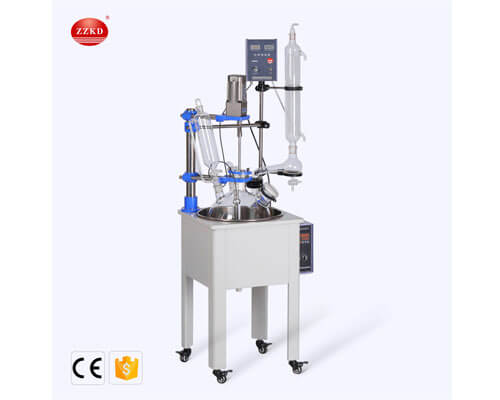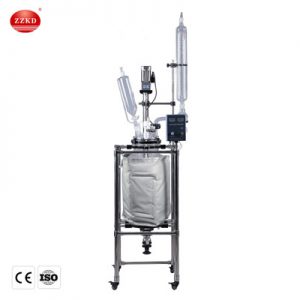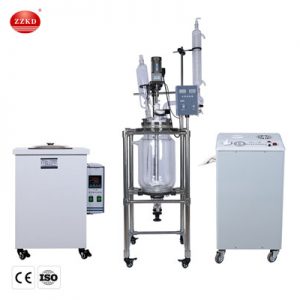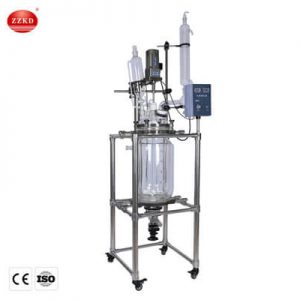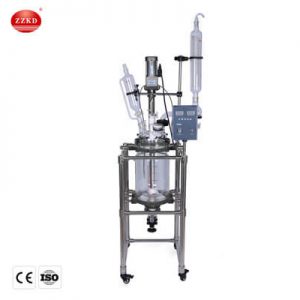Borosilicate glass reactor introduction
Borosilicate glass reactors are a type of chemical reactor made from borosilicate glass, a type of glass that is highly resistant to thermal shock, chemical corrosion, and mechanical stress. Borosilicate glass is made by adding boron oxide to the glass during its manufacturing process, which gives it its unique properties.
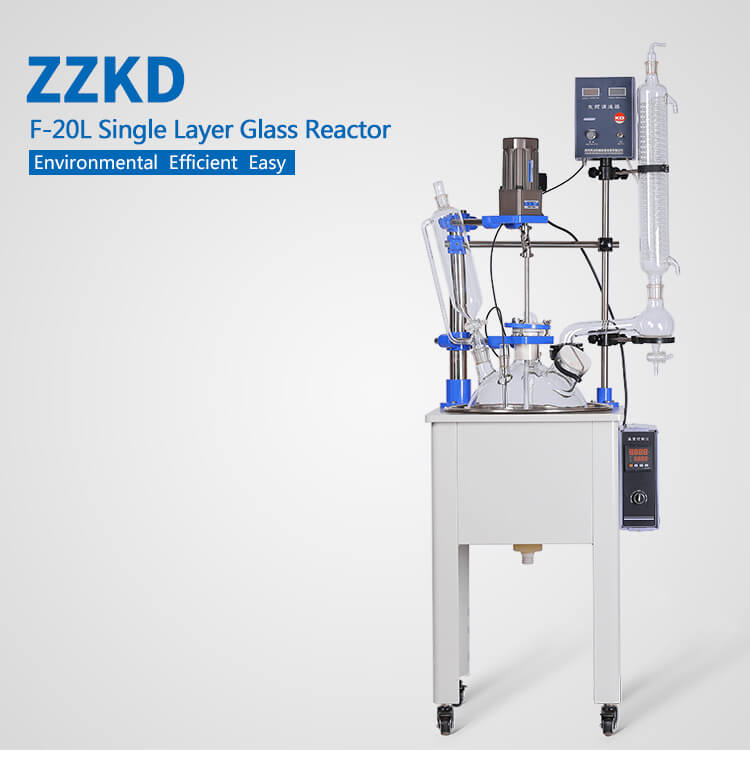
Borosilicate glass reactors are widely used in chemical and pharmaceutical industries due to their excellent thermal and chemical resistance. They are used for a wide range of applications, including mixing, reaction, and distillation of chemicals.
Borosilicate glass reactors come in various shapes and sizes, including cylindrical, spherical, and conical vessels. They are equipped with various accessories such as stirrers, thermometers, and reflux condensers that allow for precise control of the reaction conditions.
One of the advantages of borosilicate glass reactors is that they allow researchers and engineers to observe the chemical reaction as it occurs, which is essential for understanding the process and optimizing it for larger-scale production. Additionally, borosilicate glass is non-porous and easy to clean, making it suitable for handling a wide range of chemical compounds.
Borosilicate glass reactor Features:
Borosilicate glass reactors are laboratory equipment commonly used for chemical reactions due to their high resistance to chemical corrosion and high temperatures. Some common features of borosilicate glass reactors include:
High-Quality Glass Construction: Borosilicate glass reactors are made of high-quality glass that is resistant to chemical corrosion and thermal shock. This type of glass can withstand a wide range of temperatures and is highly durable.
Jacketed Design: Borosilicate glass reactors are typically jacketed to allow for precise temperature control during chemical reactions. The jacketed design allows for the circulation of heating or cooling fluids to maintain the desired temperature.
Agitation System: Borosilicate glass reactors are equipped with an agitation system to mix the reactants thoroughly and ensure even distribution. The agitation system can consist of a stir bar or an impeller, depending on the specific reactor model.
Sampling Ports: Borosilicate glass reactors typically have sampling ports that allow for samples to be taken during the reaction without opening the reactor. This helps to minimize contamination and maintain reaction conditions.
Pressure Relief System: Borosilicate glass reactors have a pressure relief system that prevents the pressure inside the reactor from exceeding safe limits. This is important for reactions that generate gases or have the potential to build up pressure.
Instrumentation: Many borosilicate glass reactors come equipped with instrumentation for monitoring and controlling various parameters such as temperature, pressure, pH, and dissolved oxygen.
Size: Borosilicate glass reactors come in a range of sizes, from small bench-top models to large industrial-scale reactors. The size of the reactor depends on the scale of the reaction being carried out.
Accessories: Borosilicate glass reactors may come with various accessories such as condensers, reflux systems, and feeding systems to facilitate specific types of reactions.
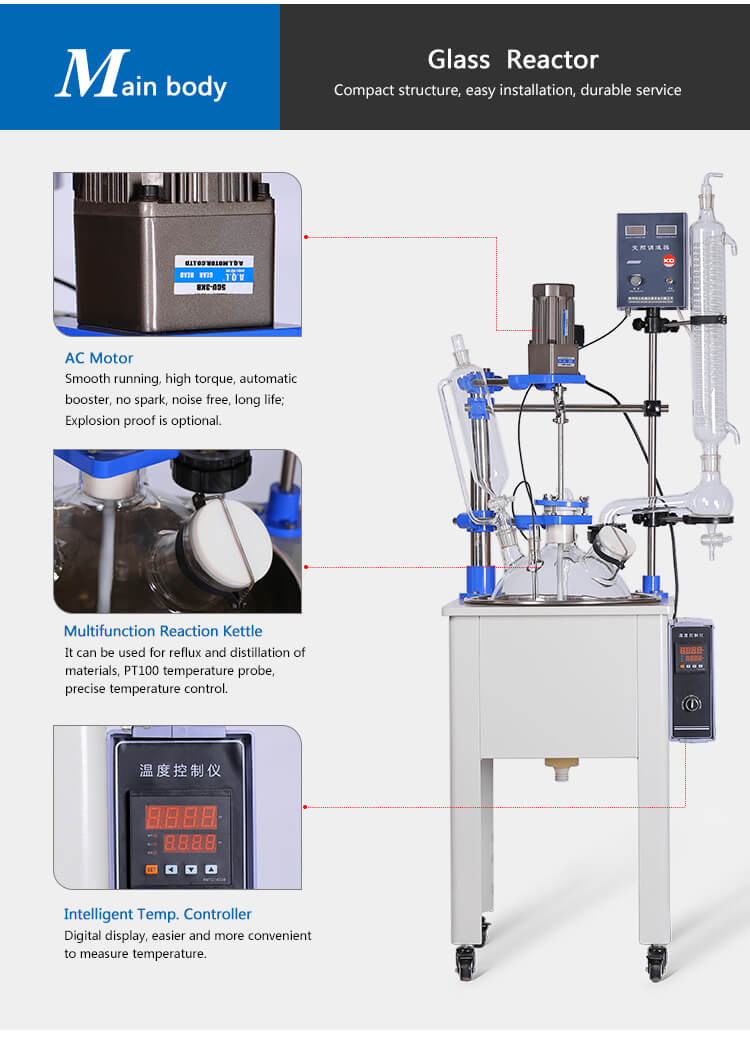
Borosilicate glass reactor Application:
Borosilicate glass reactors are commonly used in the chemical and pharmaceutical industries due to their unique properties, including high resistance to thermal shock, excellent chemical resistance, and transparency. Some applications of borosilicate glass reactors include:
Chemical synthesis: Borosilicate glass reactors are used for the synthesis of a wide range of organic and inorganic compounds. They are particularly useful for reactions that involve high temperatures or aggressive chemicals.
Distillation and purification: Borosilicate glass reactors are also used for distillation and purification of chemicals. This involves separating the components of a mixture based on their boiling points or other physical properties.
Bioreactor: Borosilicate glass reactors can be used as bioreactors for the cultivation of microorganisms and cells. This is essential for the production of antibiotics, enzymes, and other biologics.
Polymerization: Borosilicate glass reactors are used for the polymerization of monomers to produce polymers. This includes the production of synthetic fibers, plastics, and resins.
Crystallization: Borosilicate glass reactors are also used for the crystallization of compounds. This involves inducing the formation of crystals from a supersaturated solution.
Material testing: Borosilicate glass reactors are used for material testing, including corrosion testing, heat resistance testing, and pressure testing.
Borosilicate glass reactors are versatile tools that can be used for a wide range of chemical and biological applications. Their high chemical resistance, thermal shock resistance, and transparency make them an essential tool for chemical process development, optimization, and scale-up.

Supporting Equipment for Borosilicate glass reactor:
DLSB-30/30 Refrigerated Circulator
Storage Volume: 30L
Low temperature range: -30℃~RT
Refrigeration capacity: 363~2722W
Rated Power: 1950W
SHZ-C Water Circulating Vacuum Pump
Power: 370W
Flow(L/min): 80
Lift(m): 12
Max.Vacuum(Mpa): 0.098
Tank Capacity: 50L

Case : ZZKD Company Selling Borosilicate glass reactor to a Spanish Customer
ZZKD company, a well-known manufacturer of laboratory equipment, recently sold a Borosilicate glass reactor to a Spanish customer. The customer, a research laboratory in a prominent Spanish university, needed a high-quality glass reactor to carry out experiments and research on the synthesis of organic compounds.
After conducting extensive research and evaluating several laboratory equipment manufacturers, the Spanish customer chose ZZKD company for their reputation in the industry and their ability to provide custom solutions tailored to the customer’s needs. The Borosilicate glass reactor was designed and built to meet the specific requirements of the customer, including a high-precision temperature control system, a robust stirring mechanism, and a user-friendly design that could be easily operated by the research team.
Upon receiving the Borosilicate glass reactor, the Spanish customer was impressed by the build quality and attention to detail. The reactor was easy to assemble and use, and the temperature control system worked exceptionally well. The customer was particularly impressed by the level of customer service provided by ZZKD company, with prompt and knowledgeable support provided throughout the entire purchasing process.
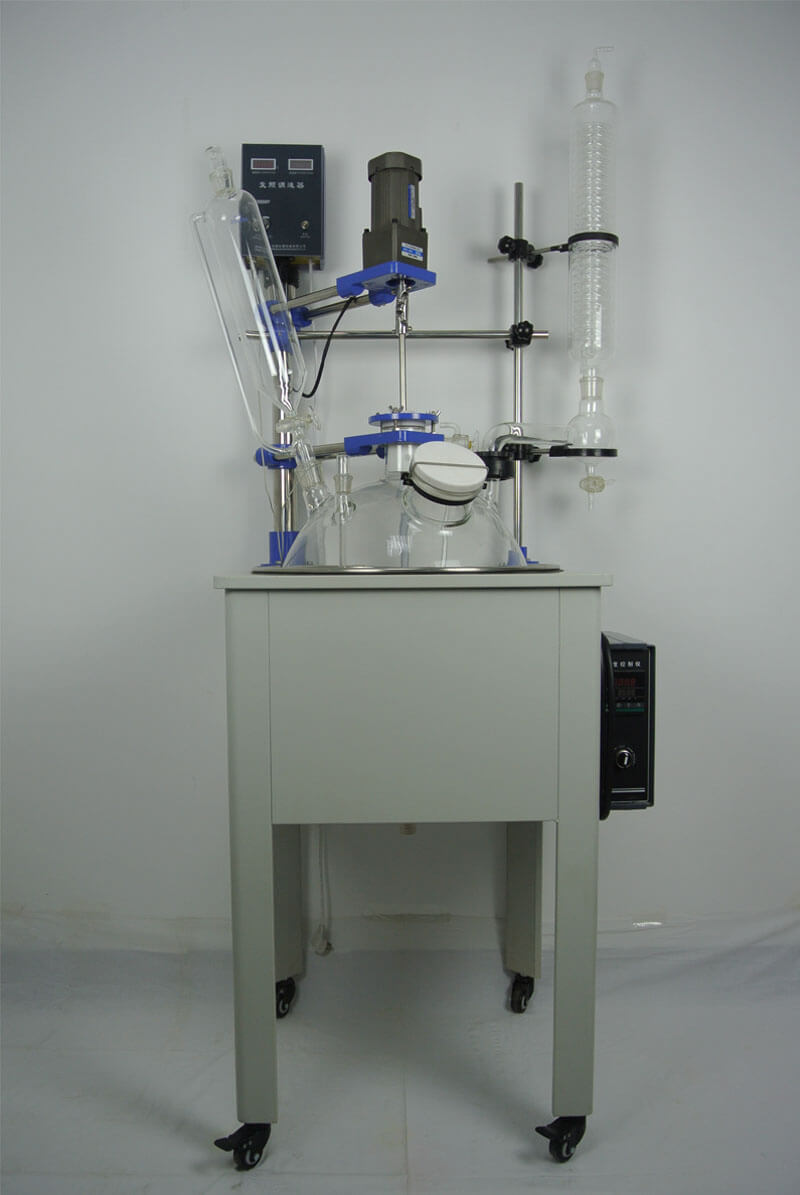
The Spanish customer has been using the Borosilicate glass reactor for their research and has reported excellent results. The reactor has performed reliably and efficiently, allowing them to carry out experiments with a high degree of precision and accuracy. The customer has also appreciated the reactor’s durability, which has allowed them to use it for prolonged periods without experiencing any issues.
In summary, the sale of the Borosilicate glass reactor to the Spanish customer was a resounding success for ZZKD company. The customer was impressed by the quality of the product, the level of customer service provided, and the reactor’s performance in their research. This positive feedback is a testament to ZZKD company’s commitment to delivering high-quality laboratory equipment and exceptional customer service.

